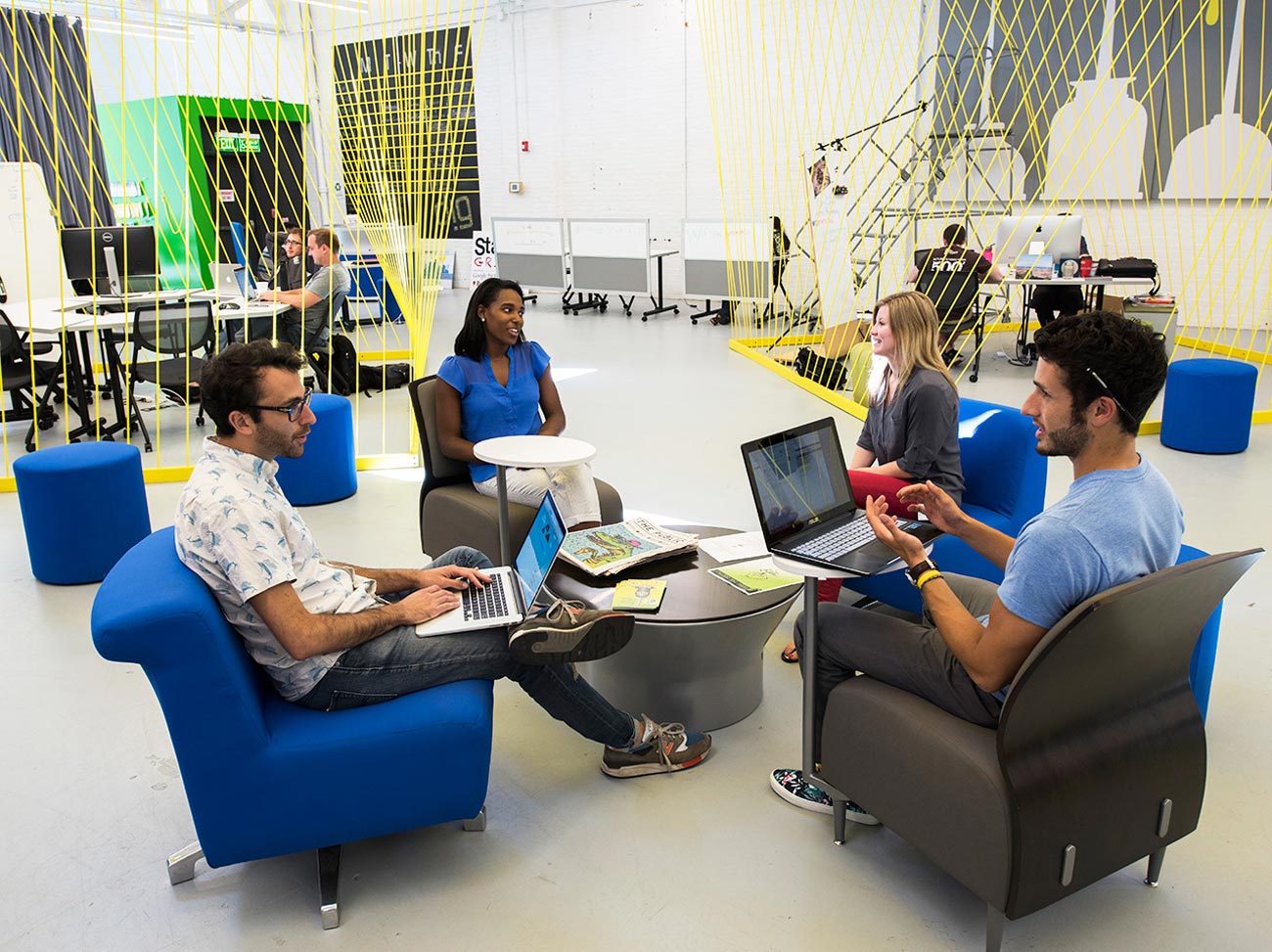
Learn from national and state innovation leaders at Promoting Tech Innovation in Upstate New York, a virtual event, Thursday, October 28 from 8:30 a.m. – 3:00 p.m. Program sponsors include Empire State Development, Central New York Biotech Accelerator (lead organizer), SUNY Upstate Medical University, TDO, CenterState CEO, Business Incubator Association of New York State (BIANYS) and The Innovation Law Center, College of Law, Syracuse University. Keynote speaker is Robert D. Atkinson, PhD, President, ITIF, who will be speaking on “The Case for Growth Centers.”
Register to receive WebEx access information: https://upstate.webex.com/upstate/j.php?RGID=ree244b39657ec735db60cd5723fe6b45
VIRTUAL PROGRAM AGENDA
| 8:30 | Welcome: Mantosh Dewan, MD, President, SUNY Upstate Medical University Introduction: Dr. David Amberg, Vice President for Research, SUNY Upstate Medical University |
| 8:45 | RADAR: Recruitment Accelerator for Increasing Diversity in Aging Research Sharon Brangman, MD, Distinguished Service Professor and Chair, Department of Geriatrics, Director, Upstate Center of Excellence for Alzheimer’s Disease, Director, Nappi Longevity Institute, SUNY Upstate Medical University The majority of U.S. clinical trials routinely exclude older adults and have do not include representative numbers of non-white participants. This creates a challenge when clinical decisions for older adults, as well as non-white adults, have to be extrapolated and applied using inadequate data points. The recruitment accelerator at Upstate, funded by the NIA and administered by the Department of Geriatrics, addresses these issues with a model that can be replicated by other research centers. |
| 9:45 | Actionable Insights to improve Patient-Centricity: AI in Patients with Advanced Cancer Ajeet Gajra, MD, FACP, Vice President & Chief Medical Officer, Specialty Solutions, Cardinal Health Augmented intelligence has the potential to enhance various aspects of healthcare. While the evolving contribution of AI in oncology is often cited, much of it limited to enhanced diagnostics. The cancer journey for patients and families is often a tumultuous one especially those battling advanced incurable cancer. Cancer clinicians make complex care decisions based on clinical and basic demographic patient information. Despite the recognition of the importance of Social Determinants of Health and their association with outcomes, it is difficult to take SDOH into account for every patient and at every time. Can AI then assist the clinical team with patient-specific dynamic decision-making? AI has the ability to enhance patient-centricity and provide clinicians with actionable insights as demonstrated by recent developments. |
| 10:45 | Biotechnology in the Hospital of the Future Robert Corona, DO, MBA, FCAP, FASCP, Chief Executive Officer, Upstate University Hospital The Hospital of the Future will rely on biotechnology to solve many of the challenges ahead. There is no “surge” of medical professionals, nursing professionals and other staff coming that will meet demand. Biotechnology will be the connective tissue that helps hold the health care system together. Artificial intelligence systems software for example assists in patient throughput to help manage capacity. Robotics and drones help with logistical problems that take away from patient care. Improved EMR systems will reduce the burden of documentation. These and other technologies will remove the “walls of the hospital” extending the services beyond bricks and mortar to multiple environments of care including the home. |
| 11:45 | Brief Break |
| Noon | The Case for Growth Centers: How to spread tech innovation across America Keynote Speaker: Robert D. Atkinson, PhD, President, Information Technology and Innovation Foundation Introduction by program sponsor NYSTAR: Matt Watson, Director of Division of Science, Technology and Innovation, Empire State Development Division of Science and Technology In the last two decades advanced industry growth has been uneven, with much of it concentrated in a few metro areas on the coasts. This pattern not only limits opportunities in other parts of the nation, it reduces overall US innovation and competitiveness. Atkinson will speak about what has happened with tech growth, why it’s a problem, and the prospects for other places to succeed, especially in the context of historically significant growth centers legislation now under consideration in congress. Dr. Atkinson is one of the country’s foremost thinkers on innovation economics. He has conducted ground-breaking research on technology and innovation and authored three books, including Big is Beautiful: Debunking the Mythology of Small Business (MIT Press, 2018). Atkinson is a sought-after speaker and valued adviser to state, national and international policymakers on topics from tax policy to advanced manufacturing, productivity, and global competitiveness. Before founding ITIF, Atkinson was vice president of the Progressive Policy Institute and Director of PPI’s Technology & New Economy Project. He received his Master’s in Urban and Regional Planning from the University of Oregon and was named a distinguished alumnus in 2014. He received his Ph.D. in City and Regional Planning from the University of North Carolina at Chapel Hill in 1989. |
| 1:00 | Upstate New York Tech Innovation Highlights Moderator: David Mankiewicz, Senior Vice President, Research, Policy & Planning, CenterState CEO Richard Uhlig, CEO, Quadrant BiosciencesStephen J. Thomas, MD, Director, Upstate Institute for Global Health & Translational Science Joe Loy, CEO, Zetagen Therapeutics Kelsey Moody, PhD, CEO, Ichor Therapeutics, Inc. |
| 2:00 | Fireside Chat with Keynote Dr. Robert D. Atkinson, CenterState CEO President, Robert Simpson and Syracuse Mayor Ben Walsh |